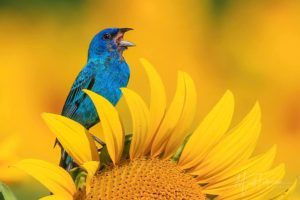Imagine- Thoughts for Elul
Cold Play and Emmanuel Kelly share Lennon’s timeless song to welcome this Shabbat of Elul- an awe-inspiring performance.
Shabbat Shalom
Imagine- Thoughts for Elul
Cold Play and Emmanuel Kelly share Lennon’s timeless song to welcome this Shabbat of Elul- an awe-inspiring performance.
Shabbat Shalom
In fact, it is not for sale. We are not selling the Sunflower Ukrainian Kippah. Instead, we ask for your contributions to support the overwhelming needs of the Ukrainian and Polish people dealing with the horrible war that rages in Ukraine.
The JCC of Krakow is on the front lines of helping people through this tragedy.
With your donation, we are sending you this kippah as a way of saying thank you for your help and as a way for you to stand publicly, proudly, and Jewishly in support of this humanitarian cause.
Please join us.
#standwithUkraine
Paul McCartney wrote Blackbird as a tribute to the civil rights struggle in the United States. It is a song that needs to be sung now for all seeking freedom. The incomparable Jon Batiste performs this rendition.
Shabbat Shalom
Why do these kippot cost so much?
It is because we are trying to raise as much money as we can to help the victims of war. We are not in the business of selling Kippot.
These kippot are unique and designed to represent the Sunflower, the national flower of Ukraine and a symbol of hope, in the Ukrainian national colors. The Kippot are made in a fair trade arrangement with a Guatemalan Women’s cooperative; we want them compensated adequately. Our goal is to get money to one of the influential NGOs in Poland, the JCC Krakow.
The JCC is dedicated to helping refugees in need, whether Jewish or not. It is an extraordinary opportunity for the Jewish community of Poland to lead in a time of crisis. It is likewise an extraordinary opportunity for the Jewish community of the United States to support the work.
Please help us with a generous donation and proudly wear a symbol of our humanity. #standwithUkraine
The JCC in Krakow will be our base of operations when we arrive.
https://www.nytimes.com/live/2022/04/06/world/ukraine-russia-war-news/jewish-center-krakow
 The preparation continues. Many of us bring duffle bags. It is a beautiful way to deliver needed supplies and an excellent way for a community to come together and help others.
The preparation continues. Many of us bring duffle bags. It is a beautiful way to deliver needed supplies and an excellent way for a community to come together and help others.
However, please donate money to the humanitarian organizations on the ground. Then they can leverage your money to get more supplies over there. It sounds like the beginning of a joke, but buying wholesale works!
And there are domestic ways to help. Rabbi Shmuley Yaklowitz is assisting refugees in Arizona, and HIAS is helping people too. So, find a way for you to connect meaningfully, and please give.
Thank you for everything so far!
Leon Sher takes the simple prayer of Moses on behalf of his sister Miriam and creates a moment we all need heading into this Shabbat. Shireinu Choir of Long Island offers this gift to us.
Wishing everyone Shabbat Shalom- a Shabbat of Peace, wholeness, and healing.